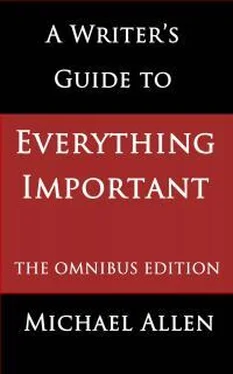So, not getting anywhere with a direct approach, our writer sets out to find a literary agent who can approach one of publishing’s gatekeepers without said gatekeeper collapsing into tears of laughter. Agent, once found, and once convinced that he has something which might, with luck, prove acceptable, sends the book to his bestest best pal. Pal accepts. Book published! Reviewers love it! Bookshops stack it on the front desk. Fame and fortune follow! Hurrah. Nobel prize and any others of note are awarded without argument. No contest. Big interviews on TV and in major newspapers. Your neighbours beg you to come to dinner. In your chauffeured Rolls Royce
And, again, all like that.
That’s what you imagine. But of course, that isn’t the way it goes.
The search for an agent can take years. Even when found, the agent suggests changes. These take months, if not years. Despair sets in, but you struggle through.
Revised book is sent out. Gets rejected. Often takes years to find an editor who is interested.
When found, the editor wants changes. Funnily enough, she wants our writer to change things back to the way they were in the first version (though the editor doesn’t know that). After more tears, break-up with boyfriend because he never sees you, you do the changes. Agent sends off new version. Editor sends a note to say she is leaving the company and her replacement doesn’t like the book. Sorry.
After two or three iterations of this, hardly ever taking more than about a decade, you actually get offered a contract. Wow! At last! Virtue, hard work and obsession are finally rewarded. Terms of contract seem a bit harsh, but you decide not to argue. You yearn to be published.
Months pass. No one talks to you about anything – agent and editor all too busy. Then one day, you receive a set of proofs. To be read, corrected and returned overnight please. You struggle to comply. Send back proofs. Further months pass. A printed copy of the book arrives. You hate the cover. Wasn’t there something in the contract about cover approval? Yes, says agent, but no one takes that seriously, and in any case the dust jackets are all printed now.
Publication day arrives. Nothing happens. No launch party, no reviews for months, the bookshop near your home has never heard of your book and doesn’t want to stock it when you describe it.
Contract calls for another book. You repeat the process. Same thing happens: i.e. nothing. One day agent sends an email to say that sales have been disappointing and publisher doesn’t want you any more. Given this, says agent, and the general state of the market, the agent doesn’t want you any more either.
End of ‘career’. But it’s all been such fun, hasn’t it? You wouldn’t have missed it for the worlds, would you?
You think I exaggerate, don’t you? Ah, if you only knew. That’s the optimistic version.
At the moment you think this is just me, being nasty and cynical and bitter. Well, one day you may find out. The hard way. Or maybe not, if you’re smart.
3.3 How the Kindle changed everything
On 19 November 2007, Amazon released the Kindle. The Kindle was the first little computer thingy which was designed principally for reading ebooks, and there must have been a bunch of people out there waiting for it because it sold out in five and a half hours. Even at $399. The device remained out of stock for the next five months.
But how did this affect writers? Dramatically is the answer.
Prior to 2007 it had always been possible for a writer to publish a book herself, in traditional printed form. It was very easy, provided you were prepared to throw lots of money around. The difficult thing was selling your book to readers.
Bookshops would not want it, even if you could get access to some reliable distribution system. So as often as not you gave away 100 copies to your family and friends and stored the other 9,900 in your garage. Where they stayed for the next ten years, until you finally accepted the inevitable and paid to have them carted away for pulping.
But now, with the advent of the Kindle, Amazon made it possible for anyone – literally anyone – to publish their own ebook. And how much did it cost? Nothing. Oh yes, you could spend money on professional editing and proof-reading if you wished, pay for it to be formatted and for a fancypants cover design, but you didn’t have to pay for any of that. You could do it all yourself. And how much did a DIY job cost you? Nothing. Not a penny.
Furthermore – and this is the almost incredible part – Amazon actually want you to publish your book through their facilities. There are no editors asking you to rewrite the end, and while you’re at it, cut 20,000 words out of the whole thing. Instead, you can publish anything you damn well please, and welcome, from a one-page poem to a 250,000-word literary masterpiece in the style of James Joyce.
Yes, it is true that a book about perverts having sex with children and dogs will probably get you unpublished by Amazon. And too much scatological libel about much loved public figures will likewise raise a few eyebrows in the Amazon office. But anything that is within reason, and a good deal that isn’t, will generally be accepted.
Just by way of example, some two or three years ago I came across an author who was publishing short novellas of about 10,000 words. These were selling about 2,500 copies a month – despite the fact that the lady could not spell or punctuate to save her life. No traditional publisher’s reader would have read more than one paragraph of her work. But on Kindle she could publish and sell.
And who, you might reasonably ask, was buying such semi-literate rubbish? Answer, people who were semi-literate themselves, but liked to be told a good story. And they were reading these books on their smartphones. These readers didn’t care about the spelling and the punctuation, because they were never much good at that stuff at school, and they aren’t about to start being fussy about it now. Just tell us a story, please Miss, and we’ll be very grateful.
In a space of about five years, it became obvious to even the slowest-witted readers, writers and publishers, that the advent of the Kindle (and similar devices) meant that publishing had just undergone the most massive change since the invention of printing.
I’m not going to try to give you any precise idea of the numbers of published books these days, because the data on book output are now unreliable. I will merely point out that in January 2012 David Houle told a conference that: ‘There were more books published this week than there were in all of 1950.’ He may not have been dead right, even to the nearest 10, but he was in the right ball park.
In 1990, there were some 25,000 books published in the US, and the only certain thing is that numbers since then have increased enormously. The growth has been powered mainly by the fact that new printing technology has made it possible for authors to publish their own books at vastly reduced cost.
According to Bowker, which is the firm that handles ISBN numbers and other bibliographical data, about 344,000 printed book were published in 2011, and 43 per cent of these were self-published. In addition, at least 87,000 ebooks were self-published. These numbers are probably lower than the true figures.
Formerly, the gates to publication had been locked tight. You needed a triple password, an endorsement from a multiple bestseller and a note from your Mum before anyone would even listen to your plea for admission. But now – Amazon has opened a new set of gates round the back. These gates are kept permanently open. And there is a big sign over the top which says, ‘Come on in, the water’s lovely. We don’t care if you’re not much cop at spelling, and there are certainly readers out there who don’t know a semi-colon from a cold in the head. All you need, to find readers, is a bit of a story – try it out, at our expense, and see if anyone likes it.’
Читать дальше












